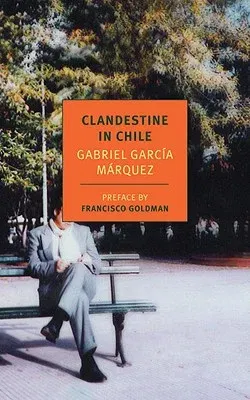Gabriel García Márquez
(Author)Clandestine in Chile: The Adventures of Miguel LittinPaperback, 6 July 2010

Qty
1
Turbo
Ships in 2 - 3 days
Only 2 left
Free Delivery
Cash on Delivery
15 Days
Free Returns
Secure Checkout

Part of Series
New York Review Books Classics
Print Length
116 pages
Language
English
Publisher
New York Review of Books
Date Published
6 Jul 2010
ISBN-10
1590173406
ISBN-13
9781590173404
Description
Product Details
Author:
Book Format:
Paperback
Country of Origin:
US
Date Published:
6 July 2010
Dimensions:
22.05 x
13.67 x
1.37 cm
ISBN-10:
1590173406
ISBN-13:
9781590173404
Language:
English
Location:
New York, NY
Pages:
116
Publisher:
Weight:
185.97 gm